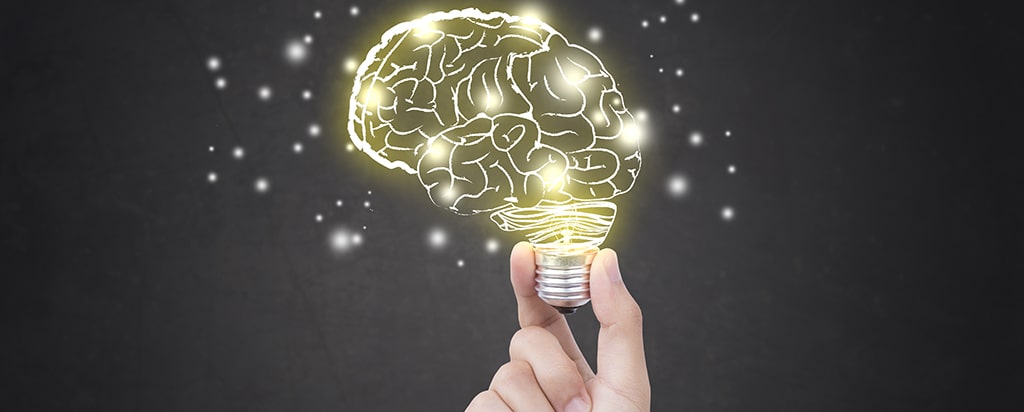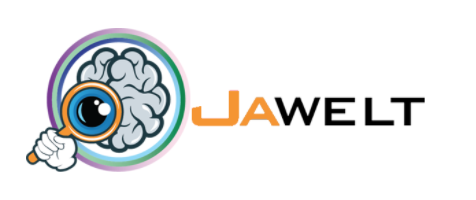
-
Understand the different types of memory
-
Follow the different laws and principles guiding your memory
-
Apply a whole range of strategies to help you remember better
-
Assist others, regardless of age, in developing their memory and learning skills
-
A keen interest in how our brain works is the only real prerequisite for this course
-
No previous knowledge about the brain required
-
No specific materials are needed for this course. Taking notes is recommended
If you are keen on developing your memory and learning, this course is for you.
Most of us don’t know how our memory work, let alone how to optimize it. We don’t know how to help our children to stimulate their memory, we fail at helping our parents to stay young at heart and in their brain. And ourselves, we’re just too busy to realize we could be way more effective…
The purpose of this course is to offer an overview of our memory throughout our different periods of life.
We are going to explore its evolution during the course of a life time. Each lecture will include exercises to improve our memory, advice to help other people and finally also explanations to allow us to better understand how our memory works.
The Science behind the course…
Since antiquity, philosophers and orators try to understand the functioning of memory. They had already developed techniques that we still use successfully today.
In the 19th century, Ebbinghaus began scientifically studying memory and discovered the laws of how we forget and William James was the first to propose to split the memory into several distinct functions.
Today, we distinguish dozens of specific types of memories. In this course, we will focus on the main 3 memory systems, which are: The Sensory memory , the short-term memory ( or working memory) and the long-term memory
This course has the ambition to be extremely complete. We’ll cover everyone and everything:
From babies and toddlers, over teenagers, to adults and old age.
From remembering names and numbers, over techniques to give presentations, to memory hacks
From theories and studies, over practical exercises and tasks you will be asked to perform
My personal experience
You have to know that as a student, studying for me looked more like a battlefield. It was something I was forced to do. An obligation. Needless to say I didn’t fare well. Through my journey into the brain, I started to understand what I was doing wrong. Long story short: pretty much everything. I remember how, in the beginning of my career, I was constantly forgetting the names of my clients, the details of the projects I was working on. I was constantly getting into trouble with my boss because of it.
Today, I can say, without the shadow of a doubt, that my brain and my memory have never worked better. And I want to share all my insights with you.
- Understand the different types of memory – and gain insight in how we remember
- Follow the different laws and guidelines – and find harmony with your brain
- Apply a whole range of strategies – and improve your memory
- Help others – and regardless of their age, help them maintain and/or develop their memory and learning skills
- And So Much More… such as babies, language, infantile amnesia, working memory, screens, drugs, the amygdala and hypothalamus, remembering names, numbers, songs, and so on …
Course overview
The first part of this course is dedicated to a few basic concepts: the different types of memory and the process of learning. These first lectures will be used to have a common basis and the same vocabulary.
From there onward, the course is divided into four parts: childhood, adolescence, adulthood, and old age.
Part 1: Childhood and memory
Children are little concerned with memory. Yet from the youngest age their brain operates at full speed. It is thanks to memory that a child learns to speak, to move, to act in the world that surrounds him. In this part we will explore several themes:
- How does a childs’ memory function,
- Why do we forget our first memories,
- How to foster the memory of a child in school and in life,
- Discover and even create some memory games yourself.
Part 2: The discovery of the world, memory of adolescents
With puberty, a series of changes appear, not only in the body, but also in the brain. These changes are also reflected at memory level. Between 10 and 14 years old, the memory of the child evolves into a new version which foreshadows that of the adult. A teenager discovers gradually the process of memory that will fully flourish a few years later. To illustrate this transformation, we will explore the following topics:
- The discovery of the power of memory and its laws,
- How to anchor a memory in the long term,
- How to find back, what was stored up there
- The effects of television and drugs on memory.
Part 3: At cruise speed, the adult.
In this part, we will explore a series of tips and tricks to remember in a more effective manner. It is here that we will dive deep into the methods of storage. Diving deep, also means to better understand the biology of memory which goes along with it. We will be exploring the following topics:
- The biology of memory,
- How to remember as an adult,
- The hygiene of memory,
- Different Tips and methods for memorizing a list, a story, a number or an anniversary…
Part 4: The Autumn of memory
We often associate old age with the loss of memory. In reality, things are more nuanced than that. There are more fears and myths than a real degradation of memory, provided, however, that we respect certain rules. That is what we are going to explore in this part.
- The decline of the memory, so what is it about?
- How to keep an active memory.
Throughout this course, there are tons of exercises, practical tips and tricks, as well as strategies and advice to strengthen your memory. Dive in deep right now and take control of your memory and learning skills.
- Anyone with an interest in Brain Science
- Anyone who wants to understand better how our memory works
- Anyone who wants to improve on memory and learning skills
- Anyone who wants to help others (children or parents) with their memory and learning challenges
Course content
Introduction
Before we start...
Now that you’ve upgraded your capacity to focus, it’s time to work on your memory.
So tell me, are you good at remembering names? Remembering numbers?
What about learning and storing new information up there?
Or just remembering conversations and what was said last time you spoke with someone?
Some people really struggle with all that.
In any case, your next course will help you understand how your memory works, and improve on it.
Enjoy!
Introduction
Welcome to this course on Memory & Learning Skills
Theoretical Framework
Implicit vs Explicit Memory
Implicit vs explicit memory. What are they? And how useful are they?
A 3 Step Memory
Discover the three steps to a strong memory
Types Of Memory
How many types of memory are there? Do you know?
Childhood
Baby Memories
Babies are already memory champions
The Early Years
How to stimulate a baby's memory
Infantile Amnesia
Why we forget everything about our first years on earth
The Age Of Reason
Kids' memorization strategies and how to help them
Memory Games
Games to stimulate children's memory
Teenagers
Teenagers
Do's and don'ts for teenagers
To Help Them Remember
Why and how we forget
Adulthood
The Biology Of Memory
Discover the 3 memory networks
Memory Lifestyle
The way we live can impact our memory
Memory Laws
Discover the 3 main memory laws
Memorize Your Agenda
We'll be sharing a great technique to memorize your agenda
Remembering Names
We'll be sharing a great technique to remember names
Sing A Song
We'll be sharing a great technique to memorize the lyrics of a song
Remembering Numbers
We'll be sharing a great technique to memorize complex numbers like your social security or credit card number.
Old age
The Autumn Of Memory
The real impact of aging on memory
What To Do
What can we do to keep a strong memory through old age?
Conclusion
Conclusion
Summary and conclusion of the course


There are no reviews yet.